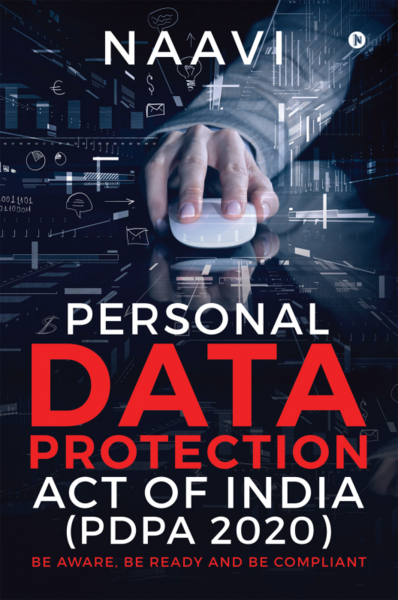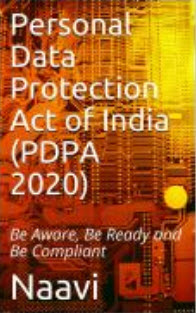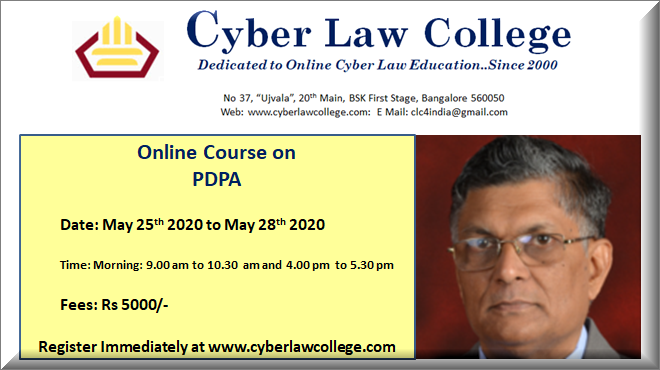It is close to 20 years since India passed the Information Technology Act and notified it with effect from 17th October 2000. It enabled digital contracts to be recognized in law and established a “Judicially recognized Digital Society”. (For this reason, Naavi has been calling for celebration of 17th October as the Digital Society Day of India).
When the IT Act was passed, the legal recognition to electronic documents under Section 4 extended all current laws to the domain of Cyber Laws by replacing the “Written” document with an “Electronic Document”. Hence under the Indian Contract Act, offers and acceptances in writing could be replaced with offers and acceptances with the use of Electronic documents. “Signing” was also extended to electronic documents by introducing the system of “Digital Signature”.
In 2008 version, provision was made for other forms of electronic signature and in 2015 we came across the notification of e-sign as one of the other forms of authentication of an electronic document along with the digital signature.
With these, an electronic document with digital signature or e-sign could be considered as equivalent to a written and signed document. Hence if such documents are used for communication of proposals or acceptances, it would form a valid digital contract.
Section 10A also provided the clarity that communication of proposals and acceptances through electronic document can lead to valid contract formation.
Exclusion of Documents from ITA 2000
The excluded documents under the then Section 1(4) which is now listed under Schedule-I, exempted Negotiable Instruments, Trust deed, Will, Power of Attorney and a contract of sale or transfer of any interest in immovable property from the legal recognition under the Act. Hence all other documents which were in electronic form could be considered as “Included” in ITA 2000.
The exclusions of these types of documents were also adopted in other countries which at that time had adopted similar laws. At the time when Draft E Commerce Act 1998, the Information Technology Bill 1999 and then the Information Technology Act 2000 was under discussion in professional circles, we had observed that the Indian law did not within the Act provided a justification for the inclusion of these documents under the “Excluded Category”. However the law had adopted the provisions from the then Malaysian law, Singapore law, Utah law etc. Unless we go through the minutes of the meeting at that time in the Drafting Committee or unless Mr T. K Vishwanathan the person who was responsible for the actual drafting of the act comes up with his memories on the issue, we will have to do with my memories in this regard.
According to my memory, some of the Countries including Pakistan (It had an ordinance similar to our bill), had specified the reasons why they kept out the immovable property transactions from the recognition. (See my comments on this bill on January 17, 2002) The ordinance had clearly said as follows:
Section 9: Stamp Duty. — (1) Notwithstanding anything contained in the Stamp Act, 1899 (II of 1899), for a period of two years from the date of commencement of this Ordinance, stamp duty shall not be payable in respect of any instrument executed in electronic form.
(2) The Provincial Governments shall, within the period specified in sub-section (1), devise and implement appropriate measures for payment of stamp duty through electronic means before or at the time of execution of the instrument in electronic form.
It was clear that the exemption was considered because of lack of proper method for collection of stamp duty. I am sure that the reasoning here as well as in other laws of that time was that stamp duty is not payable on electronic documents for reasons that were relevant at that point of time.
It was also considered (my interpretation), that India wanted to disallow property documents because electronic documents were not considered stable enough to be retained for more than 5 years and the requirement of property documents extended to retention for hundreds of years. A similar 5 year upper limit can be observed with respect to retention of certain aspects of digital signature records.
Finally, ITA 2000 did not specify the reasons for exemption of some documents and whether one of the reasons was to do with the Stamp duty issue. Hence today we are confused whether Stamp Duty is payable on electronic contracts or not.
Readers may refer to some of the articles I have provided in the “Reference Articles” at the end of this article, written by many expert advocates and my own earlier articles. Some of them try to take the Maharashtra State Government amendment of the State Stamp Act to say that since a procedure for payment of stamp duty is now available, we should consider that Electronic contracts are also to be considered as coming under the Stamp duty.
The article of Uthara Priyadarshini in Bar and Bench appears to hold out the most acceptable analysis.
Types of E Contracts
Not all contracts which we call as “E-Contracts” are formed with a specific offer and acceptance or a common agreement so that they can be printed out or Stamp duty paid at the time of signing. Incidentally I disagree with one of the authors in the articles below who considers typing the name or placing a picture of signature etc as electronic signatures under Section 3A of ITA 2000.
The only valid Section 3A electronic signature is the e-Sign. There are other forms of e-contracts such as Click Wrap, Browse Wrap or Shrink Wrap which experts often refer to.
As regards the “Click Wrap” contracts, since a “Click” cannot be considered as a “Digital Signature”, the document cannot be considered as a “Signed document”. However, the “Click-Wrap” can still be considered for formation of an “Implied Contract” since ITA 2000 did not bar the formation of contract as provided under Indian Contract Act which included both Oral and Implied contracts.
The “Click-Wrap” contract comes under the category of “Un-Negotiated”, “Dotted Line or Standard form” Contract and the principles of “Unconscionable contracts” as laid out in the CERC Vs LIC Of India Supreme Court case apply. Accordingly the “Dominant party” has to ensure that onerous clauses are sufficiently highlighted and there is a “Meeting of Minds” between the two parties to agree on the terms of the clause which may otherwise be considered as “One Sided”.
The “Browse-Wrap” contract where there is a contract some where hidden on a website which says, if you continue browsing, you are deemed to have accepted the terms of this contract is also a “Deemed or Implied Contract”. Similarly the “Shrink-Wrap” contract also tries to bind a person to the contract even before he has the full information of the terms in that part, an implied, standard form contract only.
Hence the “Click-Wrap”, “Shrink-Wrap” or “Browse-Wrap” types of electronic contracts donot fall into the category of “Written Contracts” under Indian law.
If however the offer and acceptance documents are digitally signed with a digital certificate issued by the Indian certifying authority and was valid at the time of signing, then the document can be considered as a valid contractual documents and subject to the exemptions that it is not a Bill of Exchange or Promissory Note (Cheques are included after the 5th February 2003 amendment), or a Trust deed or a Will or a Power of Attorney or a document that transfers title in an immovable property.
Now the question comes about the lack of Stamping of the document at the time of execution.
We must appreciate that “Stamping” of a document to make it valid or to make it invalid if not stamped is a requirement of revenue generation for the Government. If the Government wants to continue generating revenue on online contracts, they need to institute a proper methodology for payment of stamp duty, generating an acknowledgement and noting that on the document.
Also, if the Indian Stamp Act has defined that the Stamp Act is applicable for only paper documents then the State Governments cannot make their own amendments contrary to the Central law by introducing new instruments under the Act.
If “Electronic Documents” are recognized as an Exclusive category of documents which are neither “Oral” not “Documentary”, then the powers under Section 90 of ITA 2000 to the States should not be extended to create a new kind of “Instrument” under the State Stamp Acts which is inclusive of “Electronic Documents”. The Indian Evidence Act under Section 17 clearly identifies three kinds of statements for admission where there is a distinction between “Oral”, “Documentary” and “Contained in electronic form”, which substantiates this view. Hence “Electronic Records” are a new kind of documents other than “Oral” and “written” and Stamp act cannot create a new instrument for the purpose of collecting revenue.
The amendments of the State Governments of Maharashtra and other Governments such as Delhi, Gujarat, Rajasthan and Karnataka mentioned in the article in Lex Counsel by Seema Jhingan and others appear ultra-vires the powers of the State.
Legislative Intent
The legislative intent of introducing ITA 2000 to facilitate E Commerce was to ensure that commercial contracts could be carried on with the use of Electronic Documents exchanged over the network as “Offer E Mail” and a “Acceptance E Mail” leading to formation of contracts since there was a way of signing the offer and acceptance, there was determination of attribution, time and place of message etc.
Under “Section 4 of the Draft E Commerce Act 1998” it was stated as under:
c) In relation to this Act, electronic records shall not be liable to stamp duty under the Stamp Act, 1899.
It also added as comments:
Comments: It is not feasible to give broad legal recognition to all documents that are signed with an electronic signature because, under Indian Law, hand written signatures are more appropriate for certain categories of agreements. Therefore, the purpose of limiting application of this Act is to acknowledge the intent of relevant laws that mandate the use of pen and ink for some documents.
For example, in the case of negotiable instruments, the current state of technology does not adequately provide a reliable mechanism for the transfer or negotiation of electronic records to holders in due course beyond an originator and an initial recipient of the electronic record.
Additionally, this section provides authority to the Central Government to amend, as appropriate, the limitations set forth in this section.
Further, the application of the Stamp Act has been limited to recognize the intangible nature of electronic records, based upon precedent set in the Depositories Act, 1996.
It can therefore be construed that the Legislative intent behind ITA 2000 was clearly to exempt the Electronic Contracts from the Indian Stamp Act.
Cancellation of Stamps
Beyond all the above arguments there is also a need to look at how “Cancellation” of a stamp in the electronic scenario has to be recorded. For Stamping to be valid, the document has to be stamped at the time of its execution and has to be cancelled in an appropriate form. Does the procedure of making a payment to the treasury and noting the payment transaction number in the document constitute a valid cancellation in the absence of a specific mention in the procedures lead down by the State Governments will be a moot point.
The mother of all ITA 2000 like laws was the UNCITRAL Model law on E Commerce adopted as a resolution in UN. The UNCITRAL model law confined itself to the commercial contracts but did make mention about “Stamping” in a different context where “Stamping” is considered as a “Signature”. It noted that “alongside the traditional handwritten signature, there exist various types of procedures (e.g., stamping, perforation), sometimes also referred to as “signatures”, which provide various levels of certainty.” It also said “the concept of a signature adopted in that context is such that a stamp, perforation or even a typewritten signature or a printed letterhead might be regarded as sufficient to fulfill the signature requirement. “
These description of “Signature” were in a different context but has a connotation in the “Cancellation of Stamps” since one of the methods of cancellation is to write the date of the instrument or sign across the adhesive stamp.
Desirability of Stamping E Contracts
Not withstanding the right of the State Government to impose Stamp Act on E Contracts, and their ability to introduce the required procedures, the desirability of such a measure needs to be examined from the point of view of commercial feasibility and ease of doing business.
This is a call that the Central Government and the State Governments should take together. If the challenges are too harrowing, companies could shift the contract execution to a “Stamp Tax Haven” (virtually) using the available provisions of ITA 2000 and avoid the stamp duty.
We are presently on the threshold of a “Personal Data Protection Act” (PDPA) and this act will impose huge penalties for non compliance that cannot be ignored by E-Business organizations. In determining the obligations under the Act, the “Consent” is a critical element. The PDPA expects that the “Consent” passes the test of the Indian Contract Act. If read along with the validity of contracts under the Indian Stamp act, then all the “Consents” will fail to be valid contracts both because they may not be digitally signed or they may not be stamped under the Indian Stamp Act.
The only option for such digitally signed, un-stamped memorandum of understanding is to use the “CEAC-DROP BOX” concept which creates the witnesses to establish the evidentiary value of the memorandum of understanding without a “Documentary Contract”.
For the sake of ease of business however, this issue needs to be clarified in law so that the business entities are not kept in the dark. One option available now is through the PDPA which is still in the Bill stage, which can clarify that “Consent” can be provided without a digitally signed or Stamped document provided there is a necessary collateral evidence confirming the intention of the parties.
The above are my personal views and readers may also read the articles referred to below to get a comprehensive view of the issue.
I invite the views of others so that we can collate the views of the fraternity both from the field of Advocates, Technology professionals and the Data Protection professionals.
Naavi
Reference Articles:
1.Electronic Contracts-Applicability of Stamp Duty: Seema Jhingan, Neha Yadav and Saniya Kothari published at Mondaq.com
2. Stamp duty implications on E-Agreements: Ishika Agarwal, Vinod Kothari Consultants
3. E Contracts in India: Commercial law Blog
4. Are E Contracts amenable to Stamp Duty ?: Anuj Agarwal/Uttara Priyadarshini: Bar and Bench:
5. Redefining the scope of ITA 2008.. in the amendments..
6. Stamp Duty on Electronic Records
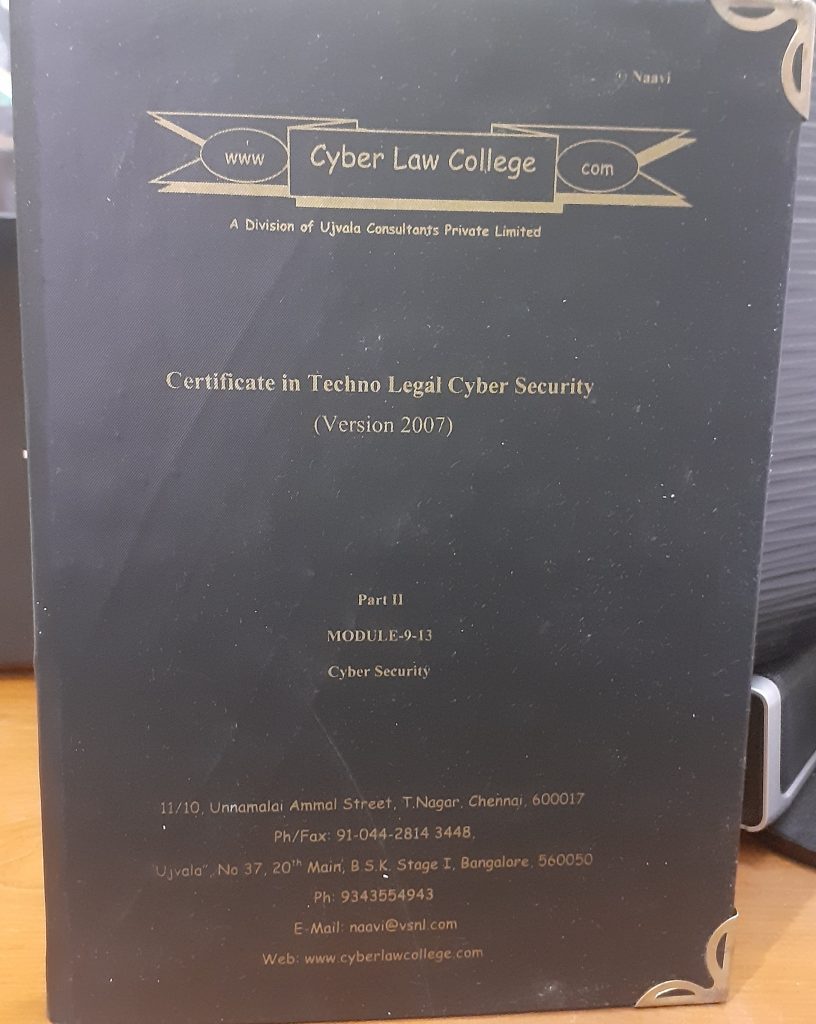
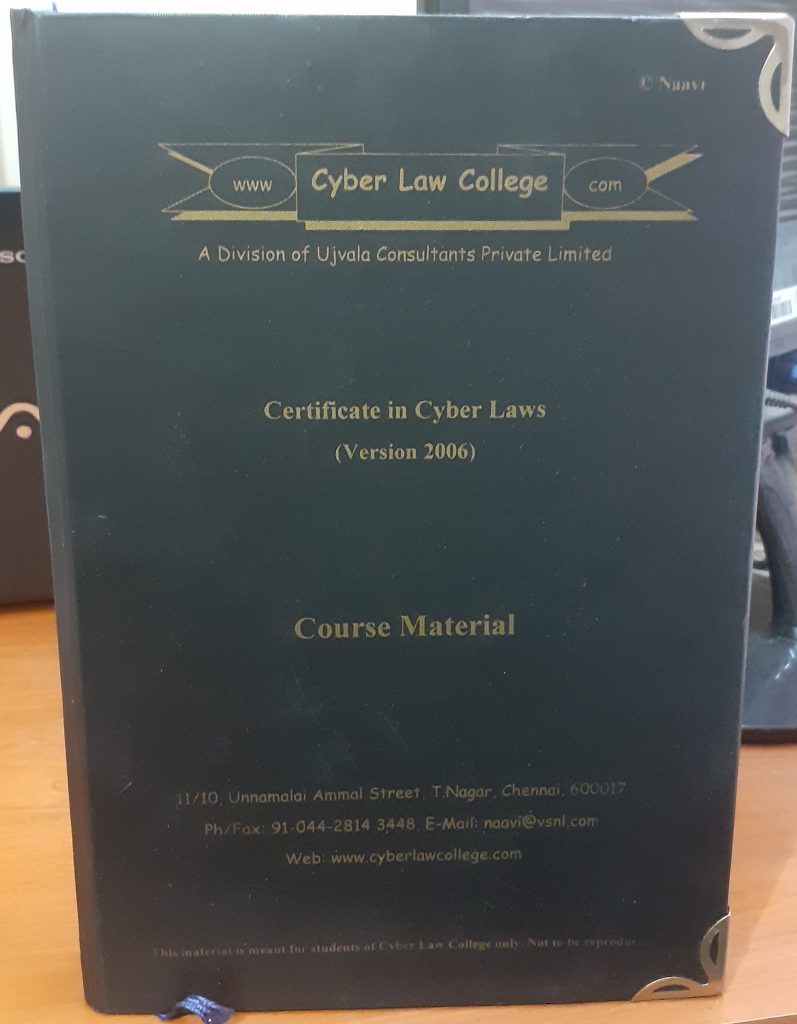
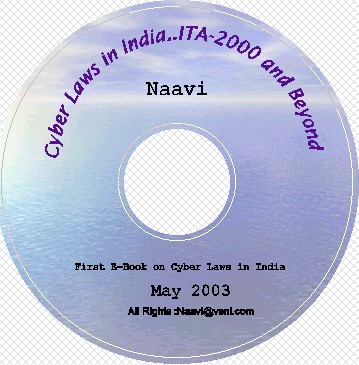 Subsequently CD Books were also used by Naavi both in 1999 when the printed book “Cyber Laws for Every Netizen in India” had to be supplemented with the copy of the Bill as presented in the Parliament. Subsequently, several CD Books were released on Cyber Crimes.
Subsequently CD Books were also used by Naavi both in 1999 when the printed book “Cyber Laws for Every Netizen in India” had to be supplemented with the copy of the Bill as presented in the Parliament. Subsequently, several CD Books were released on Cyber Crimes.